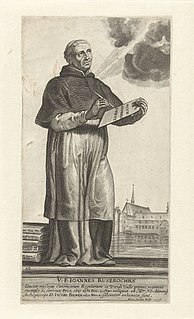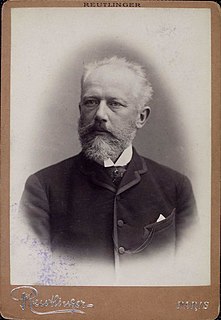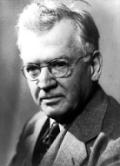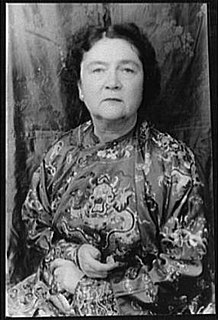A Quote by John Dryden
Imagining is in itself the very height and life of poetry, which, by a kind of enthusiasm or extraordinary emotion of the soul, makes it seem to us that we behold those things which the poet paints.
Related Quotes
We have our little theory on all human and divine things. Poetry, the workings of genius itself, which, in all times, with one or another meaning, has been called Inspiration, and held to be mysterious and inscrutable, is no longer without its scientific exposition. The building of the lofty rhyme is like any other masonry or bricklaying: we have theories of its rise, height, decline and fall -- which latter, it would seem, is now near, among all people.
Among all the valuable things of this world, the word is the most precious. For in the word one can find a light which gems and jewels do not possess; a word may contain so much life that it can heal the wounds of the heart. Therefore, poetry in which the soul is expressed is as living as a human being. The greatest reward that God bestows on man is eloquence and poetry. This is not an exaggeration, for it is the gift of the poet that culminates, in time, with the gift of prophecy.
When love has carried us above all things ... we receive in peace the Incomprehensible Light, enfolding us and penetrating us. What is this Light, if it be not a contemplation of the Infinite, and an intuition of Eternity? We behold that which we are, and we are that which we behold; because our being, without losing anything of its own personality, is united with the Divine Truth.
How can one express the indefinable sensations that one experiences while writing an instrumental composition that has no definite subject? It is a purely lyrical process. It is a musical confession of the soul, which unburdens itself through sounds just as a lyric poet expresses himself through poetry...As the poet Heine said, 'Where words leave off, music begins.'
It is because the cosmos is meaningless that we must secure our individual illusions of values, direction, and interest by upholding the artificial streams which give us such worlds of salutary illusion. That is - since nothing means anything in itself, we must preserve the proximate and arbitrary background which makes things around us seem as if they did mean something.
Hemingway, damn his soul, makes everything he writes terrifically exciting (and incidentally makes all us second-raters seem positively adolescent) by the seemingly simple expedient of the iceberg principle - three-fourths of the substance under the surface. He comes closer that way to retaining the magic of the original, unexpressed idea or emotion, which is always more stirring than any words. But just try and do it!
A trouble with poetry is the presence of presumptuousness in poetry, the sense you get in a poem that the poet takes for granted an interest on the reader's part in the poet's autobiographical life, in the poet's memories, problems, difficulties and even minor perceptions. I try to presume that no one is interested in me. And I think experience bears that out. No one's interested in the experiences of a stranger - let's put it that way. And then you have difficulty combined with presumptuousness, which is the most dire trouble with poetry.
Art and poetry cannot do without one another. Yet the two words are far from being synonymous. By Art I mean the creative or producing, work-making activity of the human mind. By Poetry I mean, not the particular art which consists in writing verses, but a process both more general and more primary: that intercommunication between the inner being of things and the inner being of the human Self which is a kind of divination (as was realized in ancient times; the Latin vates was both a poet and a diviner). Poetry, in this sense, is the secret life of each and all of the arts.







































